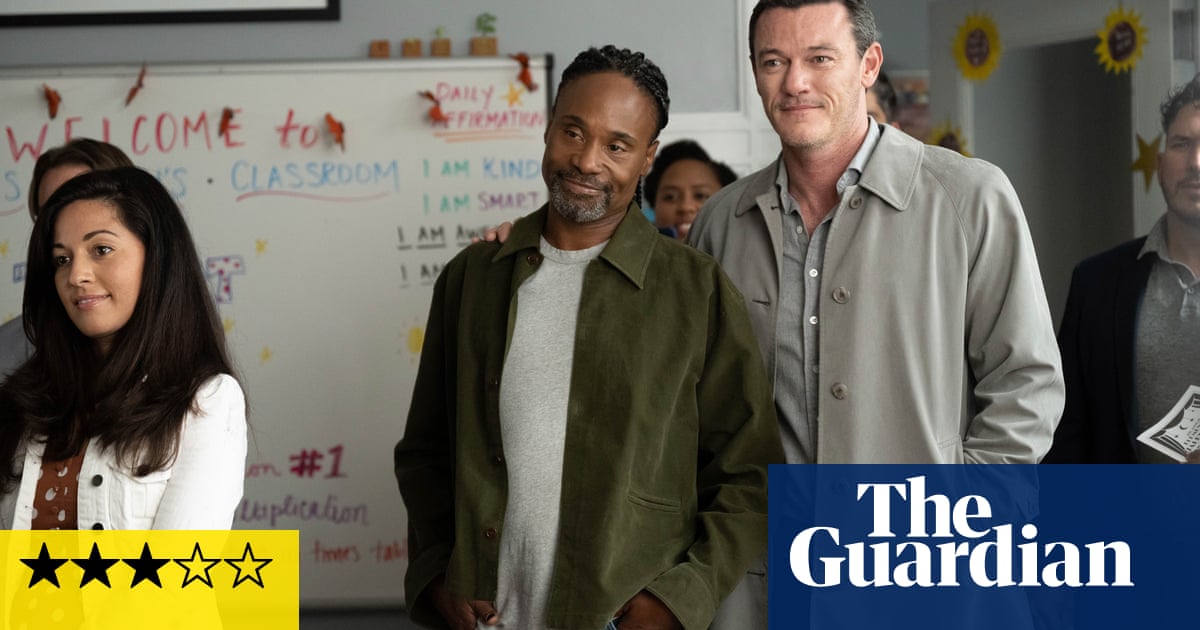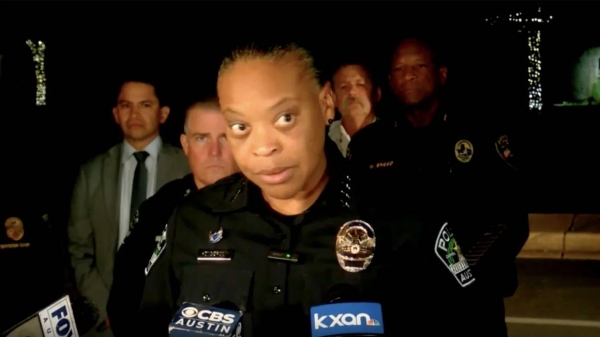
he inner recesses of the human mind have always proved too interesting, too complex, too rich with dramatic potential for film-makers to shy from. Yet it is extremely difficult to represent thought processes on screen without resorting to oversimplified shorthand; an extreme version being the old “good angel, bad angel” trope, which, while rooted in comedy, highlights the challenges in visually depicting complex subjects such as morality.
The ABC’s thrilling new eight-part drama Wakefield – a superbly made and utterly riveting series, based in and around a psych ward in an institution on the cusp of New South Wales’s picturesque Blue Mountains – deploys familiar techniques. Surreal images, for instance, and flashbacks executed so elegantly they feel like coils of memory, dangling as gracefully from the narrative as a lock of hair from the head.
But the style, perspective and originality of Wakefield – created by Kristen Dunphy and directed by Jocelyn Moorhouse and Kim Mordaunt – is truly something to behold. The film-makers set themselves very tough challenges. How do you, for example, illustrate a song getting stuck in somebody’s head? One of those wretched earworms that burrow deep into our brains?
Moorhouse in particular (who directed the first three and the last two episodes) understands it’s less about a character hearing or singing the song than using cinematic language to materialise abstract ideas. This involves reverberating sound effects, changes in character behaviour, the establishing of a visual motif (tap-dancing shoes; you’ll have to watch it to find out why) – and even moments when the actors change realities by breaking into song.
The tune that gets stuck in the head of Nik (Rudi Dharmalingam), a psych nurse at Wakefield, is Dexys Midnight Runners’s Come On Eileen. This triggers what might become a breakdown; or at least a difficult period in which his mental floodgates are opened to various memories, connected in some ways to him being best man at the upcoming wedding of his sister Renuka (Monica Kumar).
Nik’s colleagues include Dr Kareena Wells (Geraldine Hakewill), with whom he shares a complex (and possibly sexual) relationship, and acting nurse unit manager Linda (Mandy McElhinney), a difficult personality with anger issues.
The writers (Dunphy, Joan Sauers, Cathy Strickland and Sam Meikle – who was also the showrunner) show us the characters lives’ inside and out of the central setting, making a point that the psych ward unites them but does not define them.
Compare this to Miloš Forman’s 1975 classic One Flew Over The Cuckoo’s Nest, in which Louise Fletcher famously played the coldly professional Nurse Ratched. Because we never spend time with Ratched away from her workplace – and barely observe her alone in thought – we end up with a character who, while well acted, is ambiguous in many respects. We don’t understand what makes her tick or what motivates her, beyond a desire to maintain a sense of normality in the face of Randle McMurphy, Jack Nicholson’s trouble-making anti-establishmentarian.
Wakefield, on the other hand, is absolutely committed to exploring the inner and outer worlds of its characters. For much of the series Nik wears a blue T-shirt, blue being – as Patti Bellantoni reflected in her excellent book If It’s Purple, Someone’s Gonna Die – a quiet and aloof colour. A “colour to think to, but not to act”, which nevertheless has “an amazing ability to influence our emotional reactions”.
The same could be said of Rudi Dharmalingam’s performance – he’s a terrific anchoring presence, with an ability to steer us into unpredictable directions – and indeed the uniformly outstanding cast around him.
Gorgeous cinematography from Martin McGrath (who recently shot Operation Buffalo and Ride Like A Girl) is textured with a slightly foggy look, suggesting there is something unclear about this story. But Wakefield isn’t vague, lofty lyricism; the drama is tense and grounded, laced with illustrations of a sentiment stated in the marketing materials that “there’s a fine line between sanity and madness”.
Early on, for instance, we see James (Dan Wyllie) in a suit and tie, discussing in a video call with clients how to “maximise an asset in a fluid and dynamic market”. Moorhouse then reveals where he is: in a communal area of the ward, wearing pyjama pants beneath a button-up shirt. He is a patient.
Other moments play along similar lines, connecting to a bedrock idea from which the entire series extends: that we are all crazy – in our own ways and for our own reasons. The show’s perspective arises from a more learned era than the time of One Flew Over the Cuckoo’s Nest, with an understanding that being “crazy” doesn’t mean acting “funny” – just as “sane” does not equal “serious” or “surly”.
Nurse Ratched, as Netflix’s grotesque recent spin-off series has speculated, might not have been a level-headed professional after all. But asking whether she is sane or not misses the point: we are all Nurse Ratched and we are all Randle McMurphy. While the old good angel/bad angel trope may be crude shorthand, it does have something going for it, in that all of us have good and bad – but good and bad are entirely none of us.
Wakefield understands that, and a whole lot of other things besides. The word “nuanced” comes to mind, but does little to communicate drama so rich and involving. The ending (no spoilers) is so well done – such a powerful and moving look at trauma, so patiently revealed across the series’ eight hours – that the hairs on my body were literally standing up, and I came close to tears. A truly great achievement and one, as they say, for the ages.
Wakefield is available to binge in full now, on ABC iView. It will air weekly on the ABC, from Sunday 18 April












